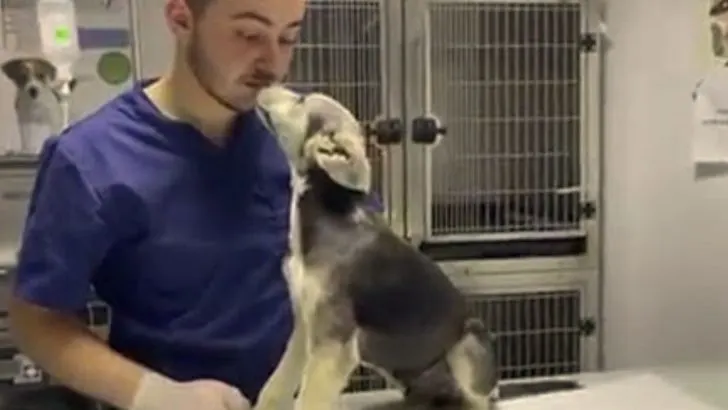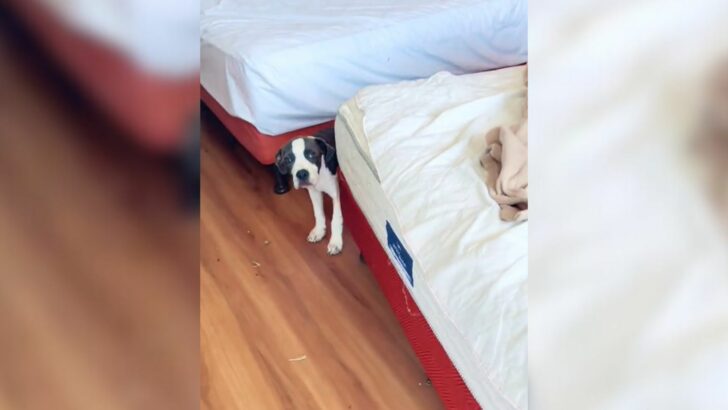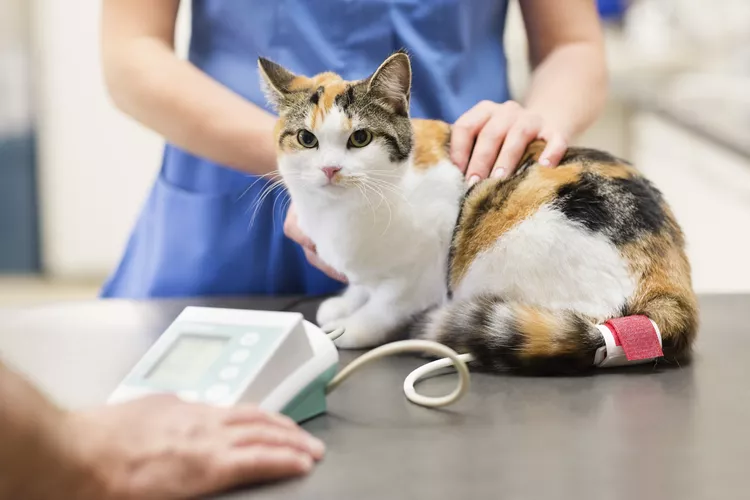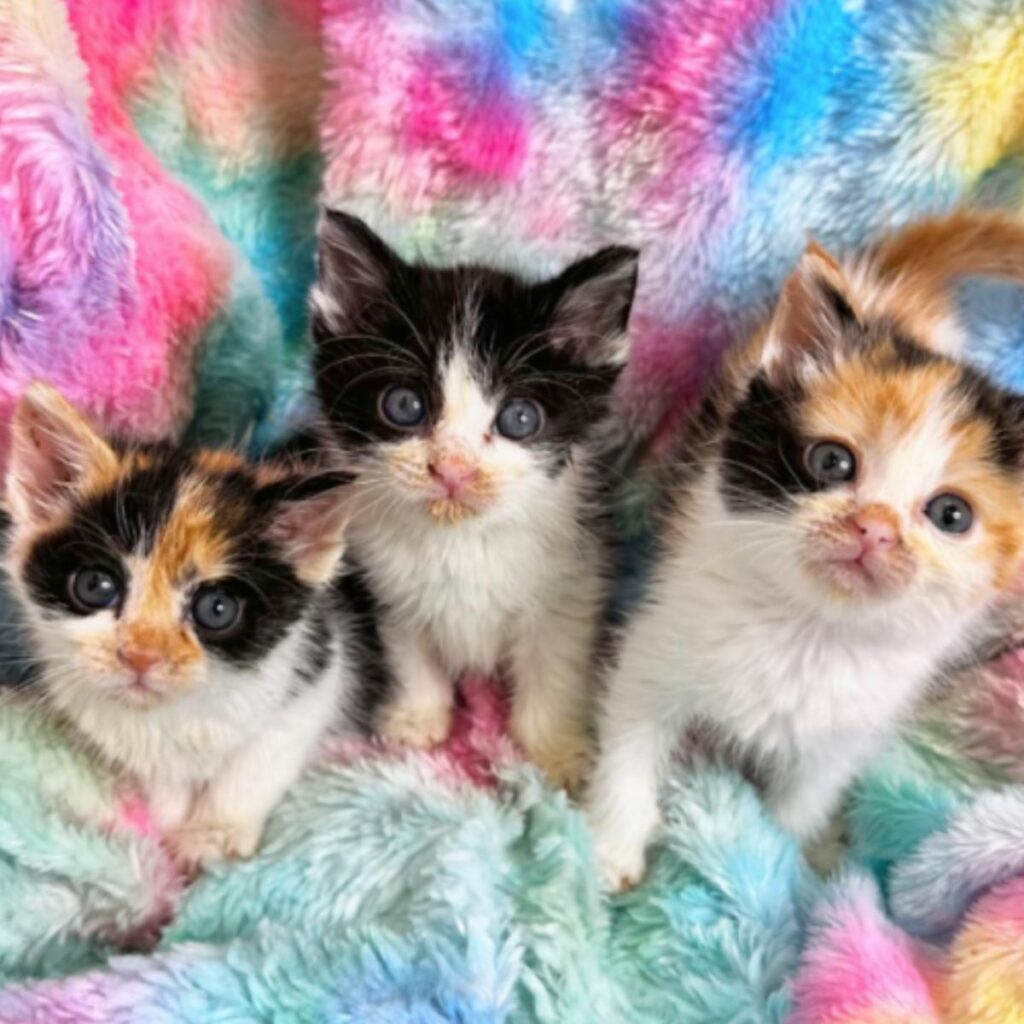After spending an entire day out of the house with the company of other human beings,
there is nothing more pleasant than coming home to a loving cat.
After all, social interaction with other people has its benefits, but the unconditional love of your cat is just unbeatable. Your cat probably feels the same way you do when you come home.
But how do you know if your kitten is getting just a tad too clingy? At what point does cat love get a little bit too much for you to handle?
Take a seat, wait for your furry roommate to jump on your lap, and as you scratch that spot on their neck that they love so much, check out these 10 signs of clingy cat
behavior.
1. Your Shadow Looks Like a Cat (The Follower)
Watch your step!- If you’ve tripped over your beloved feline at least once this week,
or if you’ve trained yourself to always look down at your feet as you walk around your
house, chances are that you have the type of cat known as the “follower”.
Read more: The 10 Best Limited Ingredient Cat Foods
2. Your Clingy Cat Has a Hard Time Letting Go (The Scratcher)
Please don’t go! – Their eyes focused on you, scratches on your cheeks, nose,
and forehead. Do you wonder why your cat gets so affectionate all of a sudden? Well, Cats love to get attention (especially) when you’re asleep or busy watching TV. A
kittie that scratches and kneads its owner repeatedly to get attention might be a bit too
clingy.
3. If You Don’t Eat, I Won’t Eat (The Dieter)
Cat caregivers especially worry about this type – another symptom of clingy behavior
is not eating or eating very little when the owner isn’t at home. This usually happens with
cats that suffer from separation anxiety. While alone they do not feel safe to eat.
4. Pillow, Mattress and Leg Belong to Me (The Bed Hogger)
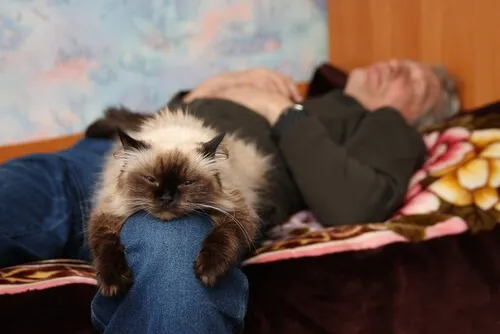
Cat snuggling – whether it’s winter, spring, summer, or fall, having your cat next to you in bed can be like having a free electric blanket. However, when your precious furry bundle of joy begins to take over your pillow, or significant portions of your mattress, demoting you to the small corner where the coil spring pokes your back – you have a clingy cat issue.
Read more: American Shorthair: Cat Breed Traits & Care Tips
5. Meow Me a River (aka: Neighbor’s Nightmare)
Clingy cat behavior involving meowing– cats calling out to get their owner’s attention is quite common. It can be bothersome enough when you are at home, but the meowing can become constant throughout the owner’s absence. Again, separation anxiety usually fosters this behavior.
6. Please Don’t Move!
Clingy cat behavior decides where you are – whether you sit, stand, or sleep is a matter that requires their approval. Your cat is so attached to you that you will notice that this type of cat will get agitated if you sit on a different chair or lie down in a different part of the bed.
7. The Scaredy Cat
Some cats react to strangers– either by being indifferent or by feeling insecure and
hiding. If every time you’ve got company your cat glues itself to your feet or legs, you
might have an extra clingy cat.
8. I Want More! (Demanding Kitty)
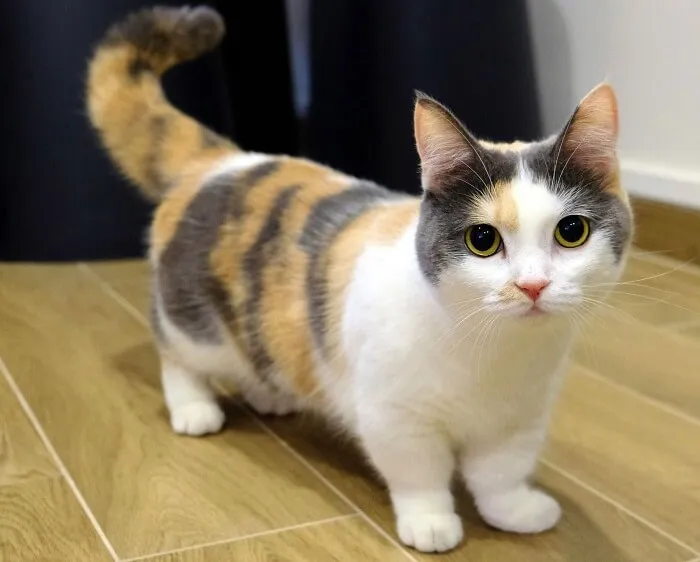
Cat wants to be petted constantly– hearing them purr as you see them enter that state of relaxation can be just as relaxing for the cat owner as for the cat. However, when every time you sit
down, your kitty comes over demanding to be petted, then you may have a clingy cat.
Read more: Norwegian Forest Cat: Majestic Feline Guide
9. Amuse Me Human! (Manipulative Cat)
Demanding clingy cat trait– Is behaviour seen in cats demanding something from their owner when they feel like it. Usually, this is the result of over-pampering. Cats pick up on how
we humans can be easily manipulated. Some cats have no problem exploiting our weakness.
10. The Clingy Cat Long Goodbye
Honey, I’m home– that moment you grab your keys, your bag, or simply the sound of
the front door knob turning causes your cat to come running towards you. Brushing up
against your leg, seemingly trying to hold you in place. That probably means you have a clingy cat. Over time they begin to associate the “tell-tale” sounds of you leaving with affection time.
Other cats associate it with your actual departure and realize that they will be alone,
triggering separation anxiety.
Still, having a clingy cat can have its advantages. Even though your cat may be clingy, melancholic or just silly, the fact that you mutually understand each other can feel very rewarding. So whether you spoil your cat silly or your cat demands attention, you’ll still have a loyal friend, eager to spend time with you!


